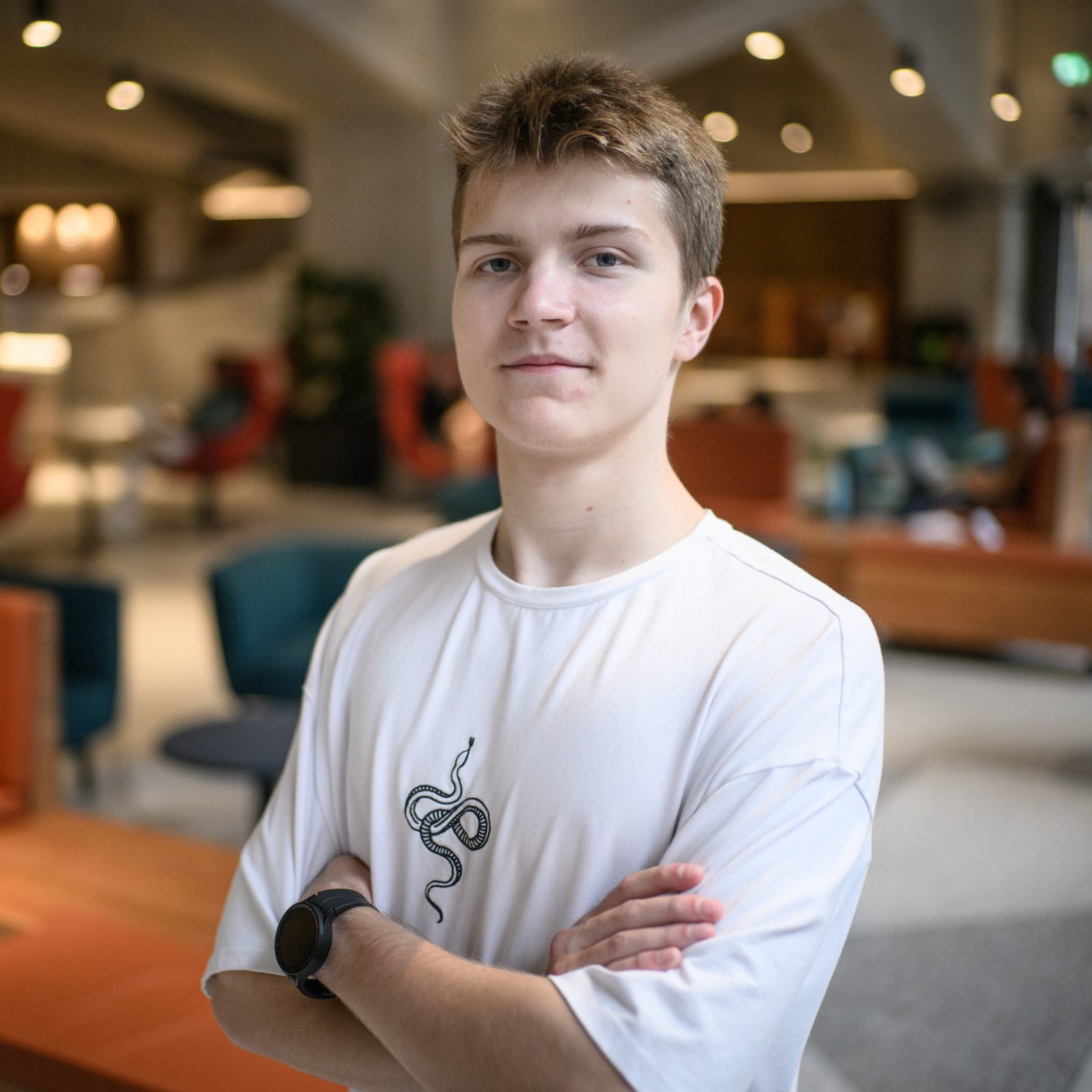5 min read
We sat down with Vladislav Terentev, who took EC200: Introduction to Behavioural Economics, to hear about his experience of the course.
Why did you decide to attend LSE Summer School?
For me, LSE Summer School was an opportunity to explore London and improve my knowledge in economics. I chose LSE as my main option because it holds a prominent status in the field that interests me.
Why did you choose EC200?
I really enjoy seeing what economic incentives cause people to act in the ways they do. The behavioural economics course allowed me to formalise and evaluate models that are suitable for tracing people’s behaviour in real life, and how this links to their economic choices. For instance, we learnt about the cognitive biases of individuals, and our lecturer showed how sometimes it can be easy to fall into misleading reasoning, even for those who are already studying these concepts.
Tell us about an average day as a student on EC200.
My day usually started with breakfast in the hall, where I discussed recent news with my friends. Then, I enjoyed walking straight to LSE for my lecture, which started at 9:00 am. After the lecture, I’d go for lunch in the campus canteen, often having fish and chips, accompanied by hot chocolate. Then, I’d head to class to discuss the new problem set with the teacher and my fellow students. After some tough mental work, there were two options: I’d either attend a social event organised by the LSE Summer School team or walk back to my accommodation, where I’d enjoy talking with my peers and eating dinner.
What was your favourite part of EC200?
I really appreciated how the lecturer demonstrated our biases during the lecture, either by using polls or simply by questioning the audience. He even organised a kind of betting auction, where everyone competed for a prize by choosing the most accurate option. Sometimes, one might think they are free from prejudices or biases, but he helped us understand that to overcome our human nature, or in other words, our brains, we must be well-informed about the biases that can emerge in everyday life.
What advice would you give to students considering EC200?
If you enjoy psychology or the behavioural aspects of everyday interactions, then this course is for you, so do not hesitate to choose it. Also, I believe that this course is suitable for students from various specialisations, as it is not difficult to understand and fosters a comprehensive perception of the world, which is much more useful than just professional knowledge.
What are your short-term professional goals, and how does EC200 contribute to these goals?
I am pursuing a career in finance, as it is my university major. Behavioural economics has primarily helped me with the critical assessment of my decisions and has given me a better understanding of why people might behave in a certain manner. I would attribute this kind of knowledge to the development of soft skills; understanding people's incentives makes it easier to interact with them productively.
Was meeting and talking to other students on your course easy?
To be honest, I found that meeting new people at Summer School was the easiest thing ever. There were many students who came alone or in open groups, always ready to help and share their ideas. Where you are from doesn’t really matter if you are open to new people, as they respond accordingly. That’s why I believe that staying in LSE halls is the best option for international students; it's the best way to meet other students and truly understand the cultures of other people. Moreover, thanks to the social events organised by the LSE Summer School, you can also meet people who are interested in the theme of the event you came for, providing a perfect opportunity to start a dialogue!
How would you explain EC200 to someone who has never heard of it?
The course is designed to formalise knowledge about people's behaviours into models, which will then help you to predict how agents respond to the decisions of one another. This is a particularly cool aspect, since, in psychology or sociology, there usually isn't a precise forecast on how a person would behave. In contrast, behavioural economics aims to find the optimal decision for the agent within the model, which is a simplified version of the real world.
What was your favourite part of studying at LSE?
The most interesting part for me was the social events. The vast variety available after classes initially left me confused about which one to choose. After attending a large number of events, I would say that they provided not only valuable lessons on the presented topics but also acquainted me with the way of thinking that people in the UK have. Additionally, they offer a great opportunity to make international friends, since many people at the Summer School will share your interests in the topics.
Did you feel supported by your lecturers?
Lecturers are ready to help with questions that arise during lectures, after the lecture, or during their office hours. The latter is an option for those who either have additional questions regarding the course literature or wish to review topics covered in the lecture if they have issues with them. I found this form of interaction with students to be the most convenient, since sometimes you need time to digest the information from the lecture and only then ask questions personally to the lecturer.

